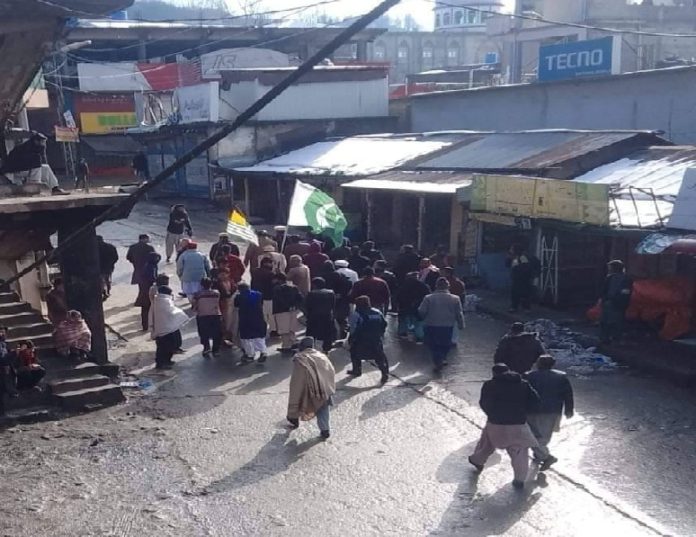
In a significant turn of events, residents of Rawalakot in Pak-occupied Jammu and Kashmir (POJK) chose to abstain from the so-called ‘Kashmir Solidarity Day’ program and rally organized by the Pakistani establishment, expressing deep-seated resentment against the authorities.
The annual event, which traditionally saw hundreds of thousands of enthusiastic participants, took a different turn this year as majority of citizens chose not to attend. The program aimed at expressing solidarity with Kashmir became a reflection of the growing discontent among the people of Rawalakot.
In recent years, Rawalakot has witnessed an escalation in grievances, with residents citing increased oppression, injustice, and non-judicial actions by the Pakistani regime as the primary reasons for their disillusionment. The sentiment has reached a point where people are now unwilling to associate themselves with Pakistan, and the Kashmir Solidarity Day rally became a focal point for expressing this collective discontent.
Even though the puppet government in POJK had announced the rally with the hope of garnering support, the turnout was significantly lower than expected. Merely 20 individuals participated in the event, with the majority of those in attendance being government employees compelled to join due to their employment obligations.
Accepting the reality of Kashmir Solidarity Day
This stark contrast in participation levels, particularly the absence of individuals from civil society, students, and ordinary citizens, serves as a clear indication of the intensifying resentment against the perceived injustices. The refusal of Rawalakot residents to engage in the Kashmir Solidarity Day event underscores the notion that as the chain of oppression grows, so does the community’s rejection of such events that aim to showcase unity. After over 76 years of illegal occupation, the Kashmiris are finally realising that what they perceived as freedom was merely a disguise and that they have been in the captivity of Pakistan ever since. Now, at a time when the Kashmiris in free J&K are talking about development, infrastructure, education, connectivity, digitisation and all crucial components of a fast developing region, the POJK is on the streets over wheat and electricity.
So, Kashmiris celebrating first Black day instead of Kashmiri Solidarity day indicates that they have now got a clear idea that their struggle was always in the wrong direction. And that they have to fight for the rights first. As far as solidarity is concerned, it is only possible once they break the shackles of occupation and joining back to India to become free in real sense.
